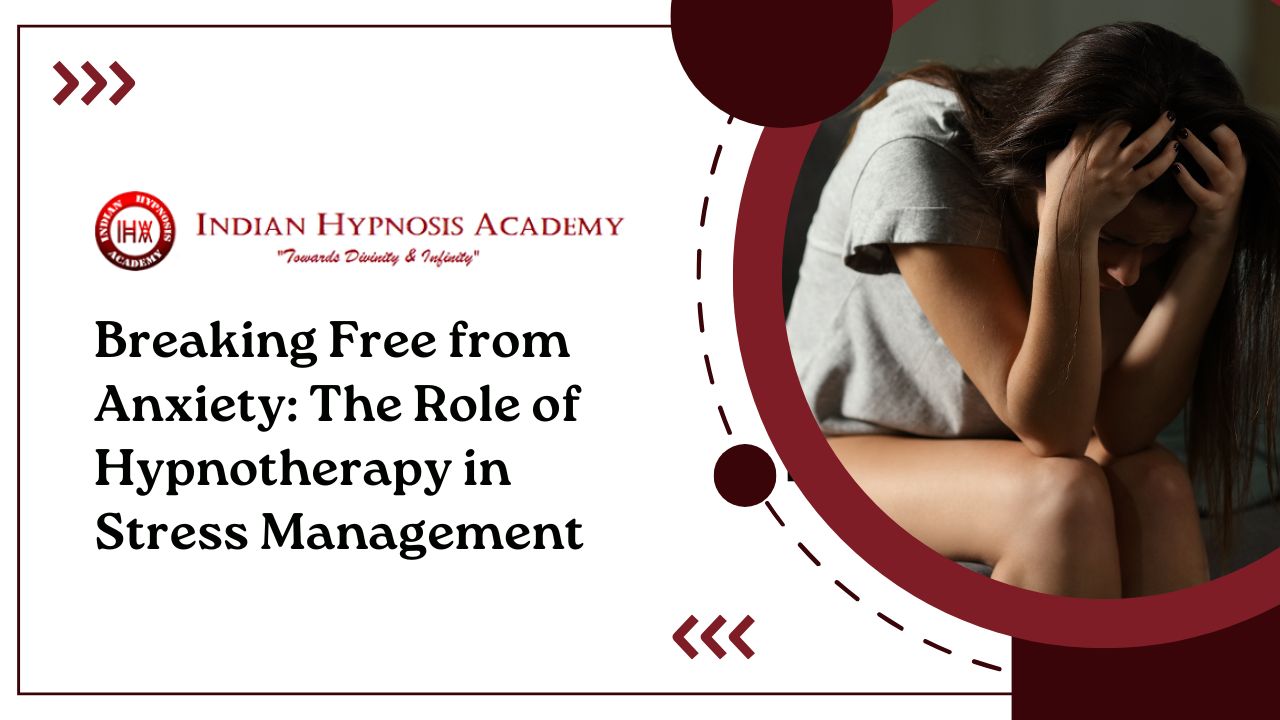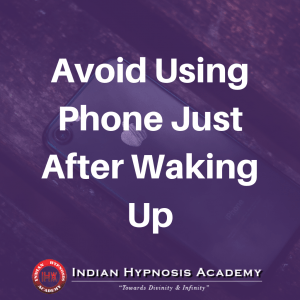Anxiety can feel like a relentless storm, swirling through your mind and affecting every aspect of your life. Whether it’s a nagging worry about tomorrow’s deadlines or an overwhelming fear that keeps you awake at night, the struggle is real. It impacts how we work, socialize, and even enjoy our hobbies. For many people, traditional methods of managing anxiety—like therapy or medication—don’t always provide the relief they seek. That’s where alternative approaches come into play.
In recent years, hypnotherapy has emerged as a promising tool for stress management. With its focus on harnessing the power of the subconscious mind, it offers a unique pathway to breaking free from anxiety’s grip. If you’re tired of feeling trapped by constant worries and are curious about innovative ways to reclaim your peace of mind, this exploration into hypnotherapy may just hold the answers you’ve been searching for. Let’s delve deeper into how this transformative practice can help you navigate life’s challenges with newfound confidence and calmness.
Understanding Anxiety and Its Impact on Daily Life
Anxiety manifests in various forms, from mild unease to full-blown panic attacks. It can disrupt the flow of daily activities, making even simple tasks feel daunting. Many individuals experience racing thoughts, heightened worry, and an overwhelming sense of dread.
This constant state of alertness can lead to physical symptoms like fatigue and muscle tension. Relationships may suffer as social situations become increasingly challenging. The joy once found in hobbies often fades under the weight of anxiety’s grip.
Work life isn’t spared either; concentration diminishes and productivity plummets when anxiety rules the mind. People frequently find themselves caught in a cycle where stress breeds more stress, creating a seemingly endless loop that is hard to break free from.
Understanding these impacts is crucial for anyone looking to regain control over their life and well-being. Recognizing anxiety’s influence helps pave the way toward effective strategies for coping and healing.
Traditional Methods for Managing Anxiety
When it comes to managing anxiety, many individuals often turn to traditional methods. These typically include therapy and medication. Cognitive-behavioral therapy (CBT) is a popular choice. It helps people identify and change negative thought patterns.
Medications like SSRIs can provide relief for some. They work by balancing chemicals in the brain that affect mood. However, these options may not be suitable for everyone.
Lifestyle changes are also crucial in tackling anxiety. Regular exercise promotes endorphin release, which boosts mood significantly. Additionally, proper nutrition plays a vital role in mental health.
Mindfulness techniques have gained attention too. Practices such as deep breathing or meditation help many find moments of calm amid chaos. Yet, despite their effectiveness, some still seek alternative avenues when traditional methods fall short or present challenges.
The Rise of Hypnotherapy as a Stress Management Tool
Hypnotherapy is gaining traction as a powerful tool for managing stress and anxiety. As people seek alternatives to conventional treatments, this therapeutic method stands out.
The increasing awareness of mental health has prompted individuals to explore various avenues for relief. Hypnotherapy offers a unique approach by tapping into the subconscious mind. It encourages relaxation and helps reframe negative thought patterns.
More practitioners are emerging, fueling interest in hypnotherapy’s effectiveness. Many report significant improvements in their emotional well-being after just a few sessions. This trend reflects a broader shift toward holistic healing practices that prioritize mind-body connections.
With its ability to promote deep relaxation, hypnotherapy appeals to those who want an effective solution without reliance on medication. As stigma fades away, more individuals are willing to try this innovative technique in their journey towards better mental health.
What is Hypnotherapy and How Does It Work?
Hypnotherapy is a therapeutic technique that harnesses the power of focused attention and relaxation. It guides individuals into a trance-like state, where the mind becomes highly receptive to suggestions.
During this state, the conscious mind relaxes while the subconscious opens up. This allows for deeper exploration of thoughts and emotions that may be causing anxiety.
The hypnotherapist uses verbal cues to direct this process, helping clients access memories and feelings often buried beneath everyday stress. By doing so, they can confront issues rather than avoiding them.
Hypnotherapy does not erase memories or control behavior; instead, it fosters a sense of empowerment. Clients often report feeling more in control after sessions as they integrate new coping strategies into their lives.
This approach aims to rewire thought patterns associated with anxiety, promoting emotional healing and resilience over time.
Benefits of Hypnotherapy in Reducing Anxiety
Hypnotherapy offers a gentle yet effective approach to managing anxiety. It taps into the subconscious mind, helping individuals uncover the root causes of their anxious feelings.
One significant benefit is its ability to promote deep relaxation. This state allows clients to release tension and stress that often accompanies anxiety disorders.
Additionally, hypnotherapy enhances self-awareness. Individuals learn to recognize triggers and develop coping mechanisms tailored specifically for them.
Another advantage is the reprogramming of negative thought patterns. By addressing limiting beliefs, it fosters a more positive mindset.
Clients also report improved sleep quality after sessions, leading to better overall mental health. With regular practice, hypnotherapy can create lasting changes in how one responds to stressors in daily life.
This therapeutic method empowers individuals on their journey toward emotional resilience and well-being.
Case Studies: Real People’s Experiences with Hypnotherapy for Anxiety
Sarah, a 32-year-old marketing executive, struggled with crippling anxiety before seeking hypnotherapy. After just four sessions, she reported feeling more grounded and in control of her thoughts. The techniques learned during her sessions helped her tackle daily stressors with newfound confidence.
Then there’s Mark, who faced social anxiety that left him isolated. Through guided imagery and relaxation techniques in hypnotherapy, he gradually felt less fearful about social interactions. He now participates in community events without the dread that once overwhelmed him.
Emma’s journey was one of self-discovery. Battling panic attacks for years, she found solace in hypnotherapy’s gentle approach to exploring underlying fears. With each session, she unearthed insights about herself that had previously remained hidden.
These experiences showcase the transformative power of hypnotherapy as a viable option for managing anxiety effectively.
Finding the Right Hypnotherapist for You
Choosing the right hypnotherapist is crucial for a successful experience. Start by researching professionals in your area. Look for certifications and training that align with reputable organizations.
Reading reviews can provide insight into others’ experiences. Personal recommendations from friends or family can also guide you toward someone trustworthy.
During initial consultations, pay attention to how comfortable you feel. A strong rapport is essential for effective therapy. Don’t hesitate to ask about their techniques and approach during these meetings.
Consider whether they specialize in anxiety management specifically, as this focus can enhance your sessions’ effectiveness.
Trust your instincts when making the final decision; feeling at ease with your therapist will significantly impact your journey of breaking free from anxiety.
Incorporating Mindfulness into Your Daily Routine for Long-Term
Incorporating mindfulness into your daily routine can be a game-changer for managing anxiety. Mindfulness is the practice of being present and fully engaged in the moment, without judgment. It helps you become more aware of your thoughts and feelings, allowing you to respond to them rather than react impulsively.
Start by setting aside a few minutes each day for mindfulness exercises. This could be as simple as focusing on your breath or observing your surroundings. Gradually increase this time as you grow more comfortable with the practice.
Consider integrating mindful activities throughout your day. This might mean savoring each bite during meals or taking short breaks to stretch and breathe deeply at work. Even mundane tasks like washing dishes can become moments of mindfulness if approached with intention.
Combining hypnotherapy with mindfulness offers even greater benefits in breaking free from anxiety. Hypnotherapy can help rewire negative thought patterns, while mindfulness encourages living in the present moment—together creating a powerful tool for stress management.
Remember that building these habits takes time and patience; small changes add up over days, weeks, and months. As you cultivate mindfulness alongside any therapeutic practices you’re exploring, you’ll likely find yourself better equipped to handle life’s challenges with grace and resilience.




